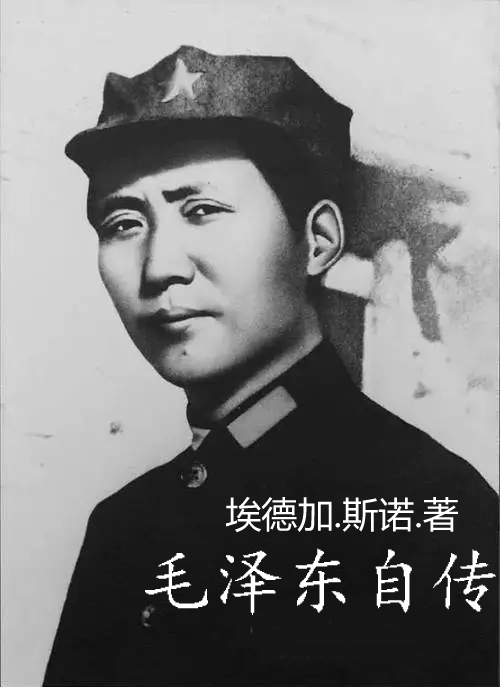The Athelnys were delighted with his change of fortune. He had kept aside a few things from the sale of his uncle”s effects and gave them all presents. He gave Sally a gold chain that had belonged to his aunt. She was now grown up. She was apprenticed3 to a dressmaker and set out every morning at eight to work all day in a shop in Regent Street. Sally had frank blue eyes, a broad brow, and plentiful4 shining hair; she was buxom5, with broad hips2 and full breasts; and her father, who was fond of discussing her appearance, warned her constantly that she must not grow fat. She attracted because she was healthy, animal, and feminine. She had many admirers, but they left her unmoved; she gave one the impression that she looked upon love-making as nonsense; and it was easy to imagine that young men found her unapproachable. Sally was old for her years: she had been used to help her mother in the household work and in the care of the children, so that she had acquired a managing air, which made her mother say that Sally was a bit too fond of having things her own way. She did not speak very much, but as she grew older she seemed to be acquiring a quiet sense of humour, and sometimes uttered a remark which suggested that beneath her impassive exterior6 she was quietly bubbling with amusement at her fellow-creatures. Philip found that with her he never got on the terms of affectionate intimacy7 upon which he was with the rest of Athelny”s huge family. Now and then her indifference8 slightly irritated him. There was something enigmatic in her.
When Philip gave her the necklace Athelny in his boisterous9 way insisted that she must kiss him; but Sally reddened and drew back.
“No, I”m not going to,” she said.
“Ungrateful hussy!” cried Athelny. “Why not?”
“I don”t like being kissed by men,” she said.
Philip saw her embarrassment10, and, amused, turned Athelny”s attention to something else. That was never a very difficult thing to do. But evidently her mother spoke11 of the matter later, for next time Philip came she took the opportunity when they were alone for a couple of minutes to refer to it.
“You didn”t think it disagreeable of me last week when I wouldn”t kiss you?”
“Not a bit,” he laughed.
“It”s not because I wasn”t grateful.” She blushed a little as she uttered the formal phrase which she had prepared. “I shall always value the necklace, and it was very kind of you to give it me.”
Philip found it always a little difficult to talk to her. She did all that she had to do very competently, but seemed to feel no need of conversation; yet there was nothing unsociable in her. One Sunday afternoon when Athelny and his wife had gone out together, and Philip, treated as one of the family, sat reading in the parlour, Sally came in and sat by the window to sew. The girls” clothes were made at home and Sally could not afford to spend Sundays in idleness. Philip thought she wished to talk and put down his book.
“Go on reading,” she said. “I only thought as you were alone I”d come and sit with you.”
“You”re the most silent person I”ve ever struck,” said Philip.
“We don”t want another one who”s talkative in this house,” she said.
There was no irony12 in her tone: she was merely stating a fact. But it suggested to Philip that she measured her father, alas13, no longer the hero he was to her childhood, and in her mind joined together his entertaining conversation and the thriftlessness which often brought difficulties into their life; she compared his rhetoric14 with her mother”s practical common sense; and though the liveliness of her father amused her she was perhaps sometimes a little impatient with it. Philip looked at her as she bent15 over her work; she was healthy, strong, and normal; it must be odd to see her among the other girls in the shop with their flat chests and anaemic faces. Mildred suffered from anaemia.
After a time it appeared that Sally had a suitor. She went out occasionally with friends she had made in the work-room, and had met a young man, an electrical engineer in a very good way of business, who was a most eligible16 person. One day she told her mother that he had asked her to marry him.
“What did you say?” said her mother.
“Oh, I told him I wasn”t over-anxious to marry anyone just yet awhile.” She paused a little as was her habit between observations. “He took on so that I said he might come to tea on Sunday.”
It was an occasion that thoroughly17 appealed to Athelny. He rehearsed all the afternoon how he should play the heavy father for the young man”s edification till he reduced his children to helpless giggling18. Just before he was due Athelny routed out an Egyptian tarboosh and insisted on putting it on.
“Go on with you, Athelny,” said his wife, who was in her best, which was of black velvet19, and, since she was growing stouter20 every year, very tight for her. “You”ll spoil the girl”s chances.”
She tried to pull it off, but the little man skipped nimbly out of her way.
“Unhand me, woman. Nothing will induce me to take it off. This young man must be shown at once that it is no ordinary family he is preparing to enter.”
“Let him keep it on, mother,” said Sally, in her even, indifferent fashion. “If Mr. Donaldson doesn”t take it the way it”s meant he can take himself off, and good riddance.”
Philip thought it was a severe ordeal21 that the young man was being exposed to, since Athelny, in his brown velvet jacket, flowing black tie, and red tarboosh, was a startling spectacle for an innocent electrical engineer. When he came he was greeted by his host with the proud courtesy of a Spanish grandee22 and by Mrs. Athelny in an altogether homely23 and natural fashion. They sat down at the old ironing-table in the high-backed monkish24 chairs, and Mrs. Athelny poured tea out of a lustre25 teapot which gave a note of England and the country-side to the festivity. She had made little cakes with her own hand, and on the table was home-made jam. It was a farm-house tea, and to Philip very quaint26 and charming in that Jacobean house. Athelny for some fantastic reason took it into his head to discourse27 upon Byzantine history; he had been reading the later volumes of the Decline and Fall; and, his forefinger28 dramatically extended, he poured into the astonished ears of the suitor scandalous stories about Theodora and Irene. He addressed himself directly to his guest with a torrent29 of rhodomontade; and the young man, reduced to helpless silence and shy, nodded his head at intervals30 to show that he took an intelligent interest. Mrs. Athelny paid no attention to Thorpe”s conversation, but interrupted now and then to offer the young man more tea or to press upon him cake and jam. Philip watched Sally; she sat with downcast eyes, calm, silent, and observant; and her long eye-lashes cast a pretty shadow on her cheek. You could not tell whether she was amused at the scene or if she cared for the young man. She was inscrutable. But one thing was certain: the electrical engineer was good-looking, fair and clean-shaven, with pleasant, regular features, and an honest face; he was tall and well-made. Philip could not help thinking he would make an excellent mate for her, and he felt a pang31 of envy for the happiness which he fancied was in store for them.
Presently the suitor said he thought it was about time he was getting along. Sally rose to her feet without a word and accompanied him to the door. When she came back her father burst out:
“Well, Sally, we think your young man very nice. We are prepared to welcome him into our family. Let the banns be called and I will compose a nuptial32 song.”
Sally set about clearing away the tea-things. She did not answer. Suddenly she shot a swift glance at Philip.
“What did you think of him, Mr. Philip?”
She had always refused to call him Uncle Phil as the other children did, and would not call him Philip.
“I think you”d make an awfully33 handsome pair.”
She looked at him quickly once more, and then with a slight blush went on with her business.
“I thought him a very nice civil-spoken young fellow,” said Mrs. Athelny, “and I think he”s just the sort to make any girl happy.”
Sally did not reply for a minute or two, and Philip looked at her curiously34: it might be thought that she was meditating35 upon what her mother had said, and on the other hand she might be thinking of the man in the moon.
“Why don”t you answer when you”re spoken to, Sally?” remarked her mother, a little irritably36.
“I thought he was a silly.”
“Aren”t you going to have him then?”
“No, I”m not.”
“I don”t know how much more you want,” said Mrs. Athelny, and it was quite clear now that she was put out. “He”s a very decent young fellow and he can afford to give you a thorough good home. We”ve got quite enough to feed here without you. If you get a chance like that it”s wicked not to take it. And I daresay you”d be able to have a girl to do the rough work.”
Philip had never before heard Mrs. Athelny refer so directly to the difficulties of her life. He saw how important it was that each child should be provided for.
“It”s no good your carrying on, mother,” said Sally in her quiet way. “I”m not going to marry him.”
“I think you”re a very hard-hearted, cruel, selfish girl.”
“If you want me to earn my own living, mother, I can always go into service.”
“Don”t be so silly, you know your father would never let you do that.”
Philip caught Sally”s eye, and he thought there was in it a glimmer37 of amusement. He wondered what there had been in the conversation to touch her sense of humour. She was an odd girl.
第一百十五章
门诊部冬季学期开学前的几个星期终于挨过去了。到了十月,菲利普便定下心来开始按部就班地学习。回到了久违的医院,菲利普发现自己在新来的学生中间显得非常突兀。不同年级的学生相互之间很少交往,而菲利普当年的同窗们绝大多数都已取得了当医生的资格:有的已经离开了圣路加医院,在乡村医院或医务室当助手或医生;有的则就在圣路加医院任职。休整了两年之后,他觉得神清气爽,精神抖擞。他想这下可以生气勃勃地大干一番了。
阿特尔涅的一家对他时来运转都感到很高兴。菲利普从他大伯的遗物里挑出几件留着未卖,给他们全家每一个人都赠送了礼物。他把一条原来属于他伯母的金链条送给了莎莉。她出落成一个水灵灵的姑娘,跟一位裁缝学徒,每天早上八点就得到坐落在里根特大街上的店铺去干活,一干就是一整天。莎莉生着一对明澈的蓝眼睛,额头宽阔,一头浓密的光灿灿的秀发。她体态丰腴健美,臀部宽大,胸脯丰满。为此,那位好议论她仪表的父亲不断地提醒她千万不要发胖。她身体健康,富有性感和女性的温柔,所以具有迷人的魅力。她有许多求爱者,但都因她毫不动心而悻悻离去。她给人以这样一个印象:在她看来,男女之间的性行为无聊透顶。因而,不难想象那些毛头小子一个个会觉得莎莉可望而不可即。她年纪不大,却老成持重。她一向帮助阿特尔涅太太操持家务,照顾弟妹,久而久之,举止行为流露出一种当家婆的神气,使得她母亲嗔怪她有点儿好强,啥事都要依着她的心意。她终日寡言少语;可是随着年岁的增长,似乎也有了一种恬静的幽默感。有时候,她也开口说上句把,这意味着她表面虽冷若冰霜,内心却情不自禁地对其同胞产生了兴趣。菲利普觉得同她很难建立起亲密的关系,而同这家其他人相处却亲密无间。间或,她那冷淡的表情使得他有点儿气恼。她身上有个叫人猜不透解不开的谜。
在菲利普送给莎莉金项链的当儿,阿特尔涅吵吵嚷嚷地坚持莎莉应该用亲吻来感谢菲利普,把莎莉说得脸涨得通红,身子连连往回退。
"不,我不吻,"莎莉说。
"不知好歹的贱丫头!"阿特尔涅叫道。"为什么不吻?"
"我不喜欢男人吻我,"莎莉回答说。
菲利普望着她发窘,觉得饶有兴味,随即把阿特尔涅的注意力引到别的话题上去。他不费吹灰之力就可以做到这一点。不过,后来阿特尔涅太太显然在莎莉面前提起过这件事情,因为第二次菲利普来后,他同莎莉单独在一起呆了几分钟,莎莉抓住这个机会对他说:
"上星期我不愿吻你,你不会恨我吧?"
"哪能呢,"菲利普笑着作答。
"这不是因为我不领情,"当她说出那事先准备好的拘泥于虚礼的话时,她的双颊不禁微微一红。"我将永远珍惜这条项链,你把它送给了我,太谢谢你了。"
菲利普总感到很难同她说话。她做起那些她一定得做的事情来,手脚很麻利,可就是好像感到没有必要与人说话似的。不过,她也不是一点不爱交际的。一个星期天的下午,阿特尔涅伉俪俩一道外出了,菲利普--已被他们视作家中的一个成员--自个儿坐在会客室里念书。这时莎莉走了进来,坐在窗前做针线活儿。女孩子的衣服都是自家做的,所以莎莉不能一事不做地白过个星期天。菲利普心想她想跟他说话,于是放下了手中的书本。
"继续念你的书,"莎莉说,"我只是想,你一个人在这里寂寞,所以我来陪陪你。"
"你是我平生遇见的最不爱说话的人,"菲利普说。
"我们可不希望家里再来一个话匣子,"她说。
她的语调并没有一丝讥诮的口吻,只是说了句实话。不过,菲利普听后觉得,在她看来--天哪!--她父亲再也不是她童年时代心目中的那个铮铮汉子了!她脑子里把她父亲那爽心悦人的谈吐和他不知节俭而每每使全家陷入困境的德行联系在一起,将他的夸夸其谈同她母亲的务实的常识作着比较。虽说她觉得她父亲那欢快的性格很有趣,但有时说不定也有点儿不耐烦。她埋头做针线活的当儿,菲利普目不转睛地望着她。她身体健康、敦实、匀称;看着她站在店铺里那些胸脯扁扁的、脸色惨白的姑娘们中间,其情景想必很奇特。米尔德丽德就患有贫血症嘛。
一段时间以后,像是有人在向莎莉求婚了。偶尔她也同她在车间里结识的朋友们一道外出。她遇上了一个小伙于,在一家欣欣向荣的公司里当电气工程师,是个最合适不过的求婚者了。一天,她告诉她母亲,说那个电气工程师已经向她求婚了。
"你怎么说来着?"她母亲问道。
"嗯,我告诉他,说我眼下还不急于想结婚。"莎莉顿了一下,她思考问题时总是这样。"见他那副着急的样子,我便告诉他可以在星期天来我们家用茶。"
这件事正对阿特尔涅的心思。为了扮好那个年轻人的岳丈这一角色,他排练了整整一个下午,直到他把孩子们逗得笑破了肚子为止。排练刚结束不久,阿特尔涅翻箱倒筐,找出了一顶土耳其帽,坚持要把它戴在头上。
"阿特尔涅,看你再胡闹!"他妻子说。这一天,阿特尔涅太太穿上了节日的盛装--黑天鹅绒质地的。近年来,她的体态越来越胖了,所以这衣服显得太紧。"你这样要把女儿的机会给搅了的。"
她拚命想把那顶帽子摘下来,可她那小个子男人像条泥鳅似的溜了。
"女人,放掉我吧!说啥也甭想叫我把这顶帽子摘下来。得让那个年轻人一进门就知道,他打算走进的这家可不是个普通人家。"
"让他戴着吧,妈妈,"莎莉用她那平和的、漫不经心的口气说道。"如果唐纳森先生对接待他的方式不满意,他可以走他的路,可以不来嘛。"
菲利普认为那个年轻人正面临一场严峻的考验。阿特尔涅穿着一件棕色的天鹅绒上衣,系了条线条平滑的黑领带,头上覆着一顶鲜红的土耳其帽,这身打扮叫那位天真无邪的电气工程师看了,非大吃一惊不可。他一到,就受到男主人那西班牙大公般的高傲的礼仪的欢迎,而阿特尔涅太太则以极其诚朴的、毫无矫饰的方式接待了他。他们端坐在修道士似的高靠背椅子上,面前是张古老的熨衣桌。这时,阿特尔涅太太从一把光瓷茶壶里倒着茶,这把壶给眼下的欢乐气氛蒙上了一层英格兰及其乡村的地方色彩。她还亲手做了些小饼儿,桌上还摆着自产的果酱。这是一次在农舍里举行的茶话会,对菲利普来说,置身在这座詹姆土一世时代落成的房子里,倒觉得别有一番雅趣。阿特尔涅出于某个荒唐的理由,心血来潮地突然大谈特谈起拜占庭的历史来了。他一直在攻读《衰亡史》这部巨著的后几卷。此刻,他戏剧性地翘起食指,又往那位惊讶不已的求婚者耳朵里灌输有关西奥多拉和艾琳的丑闻。他滔滔不绝地同客人攀谈起来,而那个年轻人则陷入了无可奈何的缄默和困窘的境地,不时地点着头,以表示他跟主人是心有灵犀一点通的。可阿特尔涅太太却对索普的夸夸其谈颇不以为然,不停地打断他的话头,给那位年轻人斟茶,一个劲儿地劝他多用些饼儿和果酱。菲利普注视着莎莉,只见她低眉垂目地坐在那儿,沉着冷静,缄默不语,若有所思。她那长长的眼睫毛在面颊上投下一道媚人的阴影。谁也吃不准她究竟是觉得这场面是有趣呢,还是喜欢那个年轻人。她这个人真叫人猜不透。但是有一件事是肯定的,即那位电气工程师仪表堂堂,长着一头金黄色的头发,配着一张小白脸儿,脸面修整得光光洁洁。他五官端正,一张脸诚实淳厚,讨人喜欢。他身材颀长,体态匀称。菲利普情不自禁地认为他将成为莎莉的理想的配偶,幸福正在向这一对年轻人招手。对此,菲利普心中不觉泛起了一种醋意。
不一会儿,那位求婚者起身说他该告辞了。莎莉不声不响地站起身来,默默地伴着他走到大门口。当她回到起居室时,她父亲突然大声嚷道:
"嘿,莎莉,我们认为你那个小伙子非常好,准备欢迎他成为我们家的一员。请教堂公布结婚预告吧,到时我一定要谱首祝婚歌曲。"
莎莉没有接她父亲的话茬,默默地动手收拾茶具。突然间,她敏捷地瞟了菲利普一眼。
"菲利普先生,你对他的看法如何?"
她一直拒绝跟弟妹们一样称他为菲尔叔叔,但又不愿意直呼其名。
"我认为你们俩真是天生一对,地造一双。"
莎莉又一次匆匆地瞥了他一眼,接着她脸上浮起一阵淡淡的红晕,连忙埋头干她的事。
"我认为他是个非常好的、谈吐文雅的年轻人,"阿特尔涅太太发表意见说。"我想他正是那种年轻人,不管哪个姑娘嫁给他,都会感到很幸福的。"
莎莉沉默了一两分钟。这当儿,菲利普一边惊异地打量着她,一边暗自思忖着,她的沉默可能有两种解释:她可能是在玩味她母亲刚才说的话;要不,她兴许在想着意中人吧。
"莎莉,我在跟你说话,你怎么一声不吭呀?"她母亲追问道,话语间含有几分愠怒。
"我却认为他是个傻瓜。"
"那你不想接受他的求婚了?"
"是的,我不。"
"我真不懂你的要求究竟有多高,"阿特尔涅太太说。很显然,这下她心里很不痛快。"他是个很正派的小伙子,可以为你提供一个非常舒适的家。没有你,我们这里也已经够吃够喝的了。你能有这么个好机会,不抓住它,太不像话了。而且,你也许还可以雇个姑娘给你干些粗活呢。"
菲利普过去从未听到阿特尔涅太太这么直截了当地诉说其生活的艰辛。他这才明白料理每一个孩子的生活该是一副多么沉重的担子啊。
"妈妈,你不要多说了,"莎莉同往常一样,说话口气很温和,"我不想嫁给他。"
"我认为你是个冷酷无情、残忍自私的姑娘。"
"如果你想叫我自谋生计,那好,我随时随地都可以去当用人。"
"别这么傻里傻气的啦,你知道你父亲是决不会让你去当用人的。"
菲利普一下触到了莎莉的目光,觉得她那目光闪烁着一丝有趣的神情。他心中嘀咕着,刚才那番谈话哪一点竟触发了她的幽默感来着。她真是个古怪的姑娘。






